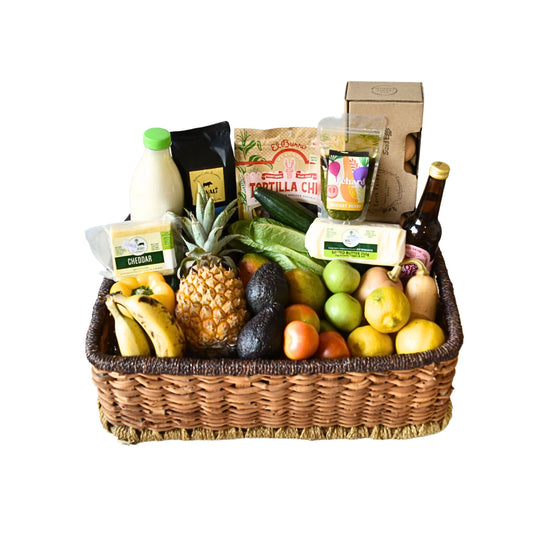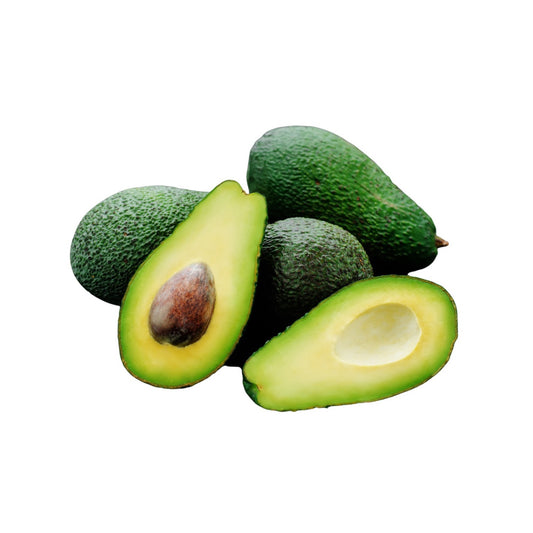Article Summary:
- Organic farming employs natural and regenerative practices that prioritize soil health, biodiversity, and ecosystem resilience, contrasting with conventional agriculture's reliance on synthetic inputs.
- Organic farming contributes to environmental conservation by enhancing soil fertility, water retention, and carbon sequestration, mitigating erosion, and reducing greenhouse gas emissions.
- Organic farming supports biodiversity conservation by avoiding harmful synthetic chemicals, fostering diverse habitats, promoting natural pest control, and enhancing overall ecosystem health and resilience.
In recent years, we have found that organic food does indeed have a grave impact on the environment, sparking widespread interest and debate about its role in sustainable agriculture and environmental conservation. As concerns over climate change, soil degradation, and biodiversity loss escalate, more attention is being focused on the ecological footprint of food production systems. Organic farming practices have emerged as a potential solution to mitigate these environmental challenges, offering a holistic approach that prioritizes soil health, biodiversity, and resource conservation. In this article, we delve into the complex relationship between organic food and the environment, exploring the environmental benefits of organic agriculture and its potential to foster a more sustainable food system.
The Environmental Impact of Organic Food Production
Organic food production revolutionizes traditional agricultural methods, focusing on sustainability and ecological harmony. Unlike conventional farming, organic practices prioritize soil health through techniques like crop rotation and composting, fostering fertile soils that resist erosion and retain water, while also sequestering carbon. By nurturing healthy soil ecosystems, organic farming mitigates environmental degradation and reduces greenhouse gas emissions.

Shop 12 Pasture Raised Eggs at Orchard Food
Moreover, organic farming promotes biodiversity conservation by avoiding synthetic pesticides and fostering natural pest control methods. This approach creates habitats for beneficial insects and wildlife, enhancing ecosystem resilience and long-term agricultural sustainability. Additionally, organic agriculture typically consumes fewer energy-intensive inputs and generates lower carbon footprints, with an emphasis on local and seasonal production further minimizing transportation emissions.
In essence, organic food production offers a holistic approach to agriculture that benefits both the environment and human health. By prioritizing soil health, biodiversity conservation, and resource efficiency, organic farming represents a sustainable path towards a resilient and eco-friendly food system.
The Case for Organic Agriculture
Organic agriculture stands as a beacon of sustainability in the realm of food production, offering a holistic approach that prioritizes environmental stewardship and human health. Unlike conventional farming methods reliant on synthetic inputs, organic practices emphasize natural and regenerative techniques that bolster soil health, biodiversity, and ecosystem resilience. By embracing strategies such as crop rotation, cover cropping, and composting, organic farmers cultivate soils that retain water, resist erosion, and sequester carbon, laying the groundwork for a more sustainable agricultural system resilient to the impacts of climate change.
Moreover, organic agriculture champions biodiversity conservation by eschewing synthetic chemicals harmful to beneficial insects, pollinators, and wildlife. Organic farms serve as havens for diverse species, fostering natural pest control and disease resistance while enhancing ecosystem health and functionality. This emphasis on biodiversity not only safeguards agricultural landscapes but also contributes to the overall resilience and sustainability of ecosystems, underscoring the intrinsic value of organic farming practices.
Furthermore, organic agriculture promotes human health by providing foods free from synthetic pesticides, herbicides, and GMOs, thereby reducing exposure to harmful chemicals in the food supply. Research indicates that organic foods may contain higher levels of certain nutrients and antioxidants, offering consumers a safer and more nutritious option. By prioritizing soil health, biodiversity conservation, and human well-being, organic agriculture offers a compelling case for a more sustainable and resilient food system that nourishes both people and the planet.
How Organic Food Benefits Ecosystems
Organic food production is instrumental in preserving biodiversity and nurturing resilient ecosystems. Unlike conventional farming, which often harms ecosystems with synthetic chemicals and monoculture practices, organic agriculture prioritizes harmony with nature and sustainable land stewardship.
One key advantage of organic farming is its promotion of biodiversity. By eschewing synthetic pesticides and fertilizers, organic farms create healthier habitats for a diverse array of plant and animal species. This diversity fosters natural pollination, pest control, and soil health, bolstering ecosystem resilience. Additionally, organic practices like crop rotation and intercropping further enhance biodiversity and mitigate the risks of crop diseases and pest outbreaks.
Furthermore, organic farming plays a crucial role in conserving natural habitats and safeguarding sensitive ecosystems. By avoiding synthetic chemicals that can contaminate soil and waterways, organic agriculture minimizes pollution and habitat destruction. Organic farms also prioritize water conservation through techniques like rainwater harvesting and efficient irrigation, supporting healthy aquatic ecosystems.
Moreover, organic food production enhances ecosystem resilience by promoting soil health and fertility. Practices such as composting and reduced tillage build robust soils that can withstand environmental stressors like drought and erosion. Healthy soils also sequester carbon, mitigating climate change and reducing greenhouse gas emissions. Overall, organic farming fosters healthier and more sustainable ecosystems that benefit both human communities and the broader environment.
The Environmental Benefits of Choosing Organic
Selecting organic food presents a myriad of environmental advantages that contribute to a healthier ecosystem and sustainable practices. Organic agriculture diverges from conventional methods reliant on synthetic inputs by prioritizing soil health, biodiversity, and ecosystem resilience.
Organic farming fosters soil health through practices like crop rotation and composting, resulting in improved structure, fertility, and water retention. This not only mitigates erosion and runoff but also facilitates carbon sequestration, acting as a natural defense against climate change. By nurturing healthy soils, organic agriculture helps reduce greenhouse gas emissions and mitigate the impacts of environmental degradation.

Shop Mooberry Farms Salted Butter at Orchard Food
Moreover, organic farming supports biodiversity conservation by eschewing synthetic chemicals harmful to beneficial insects and wildlife. Organic farms provide habitats for diverse species, enhancing natural pest control and disease resistance while bolstering ecosystem resilience. Additionally, organic agriculture promotes resource efficiency and environmental stewardship, minimizing pollution, conserving water resources, and reducing energy consumption. By choosing organic, consumers contribute to a more sustainable and eco-friendly food system that benefits both humanity and the planet.
Organic Farming's Role in Environmental Conservation
Organic farming plays a pivotal role in environmental conservation, offering sustainable practices that prioritize ecosystem health and sustainability. Unlike conventional agriculture, which relies on synthetic inputs that can harm the environment, organic farming employs natural methods to cultivate crops while preserving biodiversity and protecting natural resources.
Central to organic farming's environmental contribution is its emphasis on soil health. Through practices like crop rotation and composting, organic farmers foster healthy soils rich in organic matter and beneficial microorganisms. This enhances soil fertility, water retention, and carbon sequestration, reducing erosion, improving resilience to environmental stresses, and mitigating greenhouse gas emissions.
Moreover, organic farming supports biodiversity conservation by avoiding synthetic chemicals harmful to beneficial insects and wildlife. By providing diverse habitats and ecosystems, organic farms promote natural pest control and disease resistance, enhancing overall ecosystem health and resilience. Additionally, organic agriculture prioritizes resource efficiency, minimizing pollution, conserving water resources, and reducing energy consumption, thereby contributing to a more sustainable and eco-friendly food system that benefits both people and the planet.










